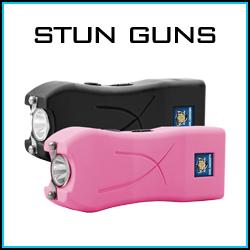Table of Contents
- North Carolina Updates Stun Gun Ownership Laws Clarifying Permit Requirements
- Legal Implications of Carrying Stun Guns Without a Permit in North Carolina
- Safety Considerations and Best Practices for Stun Gun Users in the State
- Guidance for Law Enforcement and Residents on the New Stun Gun Regulations
- The Way Forward
North Carolina Updates Stun Gun Ownership Laws Clarifying Permit Requirements
Recent legislative changes in North Carolina have led to important clarifications regarding stun gun ownership and associated permit requirements. Individuals can now legally possess stun guns without the need to apply for a permit, simplifying the process and removing previous barriers for lawful owners. However, the update also outlines specific conditions under which stun guns may be carried and used, ensuring public safety remains a priority.
Key points of the new regulations include:
- Elimination of permit requirements for the purchase and ownership of stun guns.
- Clear guidelines defining legal places and situations for carrying a stun gun.
- Restrictions regarding possession on certain government properties and educational institutions.
These revisions aim to balance personal protection rights with community safety, reflecting a modern approach to non-lethal self-defense options in North Carolina. Law enforcement agencies have been advised to familiarize themselves with these changes to ensure consistent enforcement statewide.
Legal Implications of Carrying Stun Guns Without a Permit in North Carolina
In North Carolina, carrying a stun gun without a permit does not incur criminal penalties, contrasting with many other states where permits are mandatory. This permissiveness stems from recent legislative changes affirming that stun guns are not classified as concealed weapons requiring registration or licensing. However, while personal possession and carry remain generally unrestricted, it is paramount for users to stay vigilant about the contexts in which stun guns can be employed. For instance, using a stun gun unlawfully-such as in the commission of a crime or against law enforcement-remains a prosecutable offense under state law.
Despite the absence of a permit requirement, individuals should be aware of specific regulations that govern the manufacture, sale, and transfer of stun guns. Key points include:
- Age restrictions: Possession by minors is prohibited.
- Locations: Certain public spaces, such as schools and government buildings, may restrict stun gun carry.
- Interstate concerns: Carrying stun guns across state lines may subject individuals to stricter controls.
Safety Considerations and Best Practices for Stun Gun Users in the State
While North Carolina law allows the ownership of stun guns without a permit, responsible handling is paramount. Users should always treat their devices with the same caution as any other weapon. Keep your stun gun securely stored and out of reach of children or unauthorized individuals. Additionally, familiarize yourself thoroughly with the device’s operation and limitations to avoid accidental injury or misuse.
Best practices include carrying the stun gun in an easily accessible yet secure manner when in public, ensuring battery maintenance for reliable performance, and only deploying it in legitimate self-defense scenarios. Never use stun guns to intimidate or provoke, as improper use can lead to legal consequences despite ownership rights. Adherence to these safety principles helps protect both the user and the community.
- Store stun guns safely and out of reach of minors
- Understand device controls and effective usage
- Perform regular checks to maintain battery health
- Use strictly for self-defense in accordance with state laws
- Avoid unnecessary use that could escalate conflicts
Guidance for Law Enforcement and Residents on the New Stun Gun Regulations
With North Carolina’s recent change allowing stun gun ownership without a permit, law enforcement agencies are adapting their protocols to reflect this new regulatory landscape. Officers are advised to familiarize themselves with the distinctions between stun guns and other weaponry to ensure appropriate responses during encounters. Clear communication about the rights of residents is essential for maintaining public trust and safety. Training sessions are recommended to address questions regarding lawful possession, use, and restrictions tied to these devices, emphasizing the importance of context in enforcement decisions.
Residents are reminded to:
- Understand that owning a stun gun no longer requires a permit, but responsible usage and legal limitations still apply.
- Keep stun guns out of reach of minors and use them only in self-defense scenarios to avoid legal complications.
- Stay informed about local ordinances that may impose additional restrictions beyond state-level statutes.
By staying aware and compliant, both law enforcement and the community can foster a safer environment under these updated laws.
The Way Forward
In summary, North Carolina’s recent change allowing stun gun ownership without a permit marks a significant shift in the state’s approach to self-defense regulations. This policy update reflects growing recognition of non-lethal weapons as a viable option for personal protection. As the law takes effect, authorities and residents alike will be monitoring its impact on public safety and responsible ownership. For those considering stun guns, it remains important to stay informed about legal responsibilities and ensure prudent use in accordance with state guidelines.Check Our Other Blogs
- StunGun – Your Trusted Source for Stun Guns, Laws, and Self-Defense Tips
- PepperSprayLaws – Your Trusted Resource for Pepper Spray Information
- StunGunLaws – Your Trusted Guide to Stun Gun Legality and Safety





